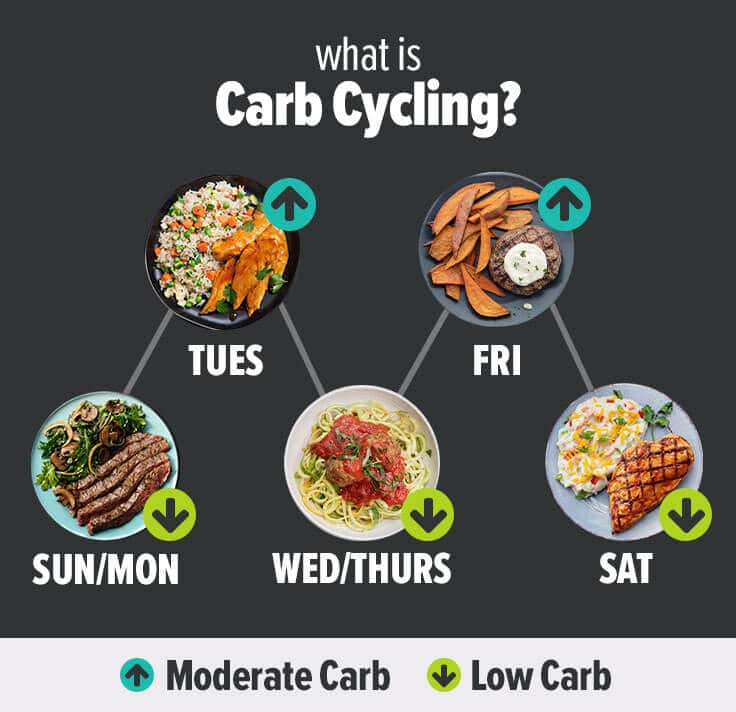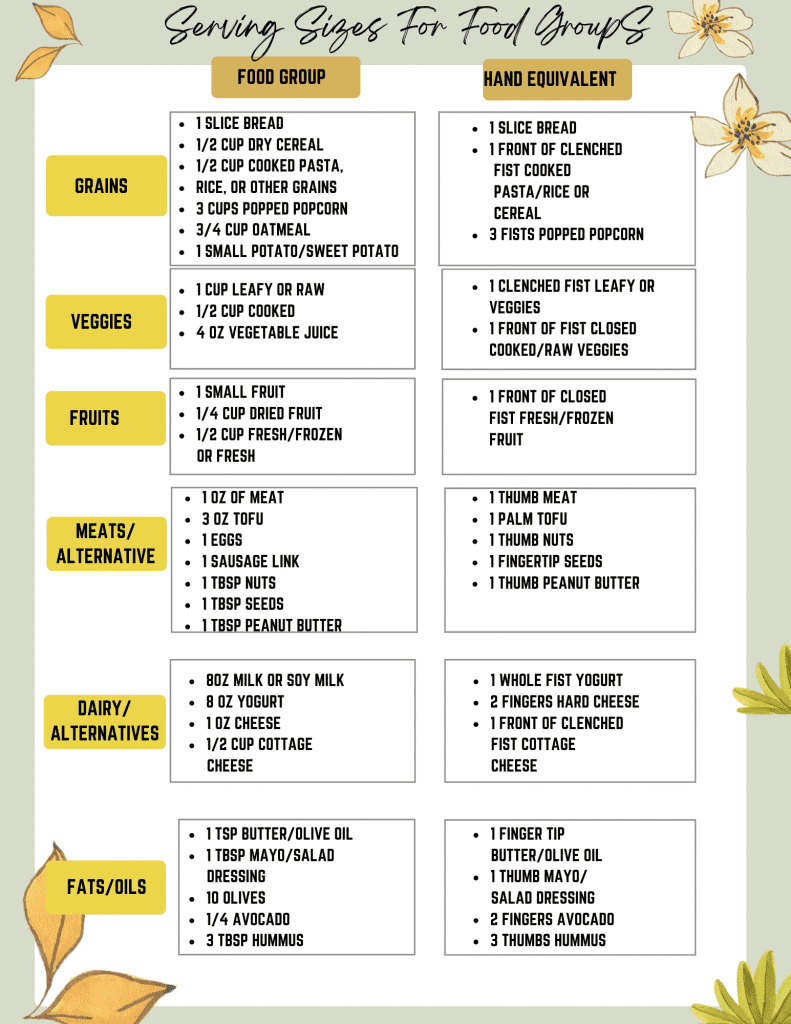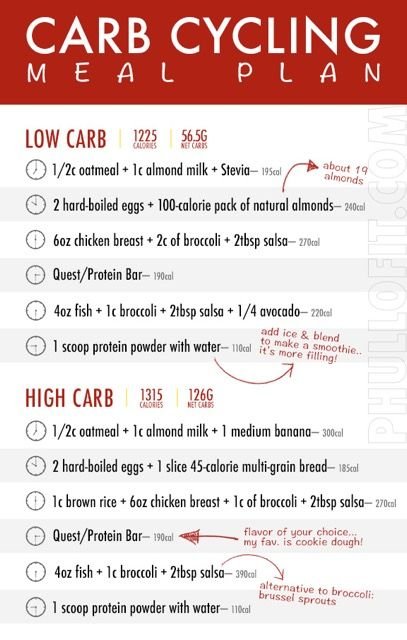Are you looking for a way to boost your metabolism without breaking the bank? Metabolic confusion could be the answer.
This meal plan tricks your body into burning more calories by varying your food intake. In this post, we explore the concept of metabolic confusion and how it works. You’ll learn how changing your meals can help you lose weight.
This plan doesn’t require expensive foods or supplements. You can follow it with simple, everyday ingredients. Let’s dive into the details of this free meal plan and see how you can start today. Your journey to a healthier you begins now.
Introduction To Metabolic Confusion
Are you tired of restrictive diets? The metabolic confusion meal plan might be the answer. This approach keeps your metabolism guessing, helping you burn more calories.
Concept Overview
The idea of metabolic confusion involves alternating between high and low-calorie days. This method prevents your body from adapting to a set calorie intake. The result? Your metabolism stays active and burns more energy.
Here’s a simple way to understand it:
- High-calorie days: You consume more calories, usually from healthy sources.
- Low-calorie days: You reduce your calorie intake significantly.
This cycle can keep your metabolism from slowing down, which often happens with traditional diets.
Benefits Of Metabolic Confusion
There are several benefits to this eating plan. Here are the key ones:
| Benefit | Description |
|---|---|
| Boosted Metabolism | By alternating calorie intake, your metabolism stays active. |
| Less Hunger | High-calorie days can reduce cravings and make low-calorie days more manageable. |
| More Flexibility | This plan allows for more variety in your diet, making it easier to stick with. |
| Sustainable Weight Loss | A constantly active metabolism can lead to steady weight loss. |
Boosted Metabolism: By alternating calorie intake, your metabolism stays active. Less Hunger: High-calorie days can reduce cravings and make low-calorie days more manageable. More Flexibility: This plan allows for more variety in your diet, making it easier to stick with. Sustainable Weight Loss: A constantly active metabolism can lead to steady weight loss.
With these benefits, the metabolic confusion meal plan offers a refreshing approach to weight management.

Credit: blog.mymetabolicmeals.com
How Metabolic Confusion Works
Understanding how the Metabolic Confusion Meal Plan works can help you make the most of this diet strategy. This approach is designed to keep your metabolism active and efficient. Let’s dive into the core principles: Caloric Cycling and Nutrient Timing.
Caloric Cycling
Caloric cycling involves alternating between high-calorie and low-calorie days. This variation prevents your body from adapting to a constant calorie level. When you consistently eat the same number of calories, your metabolism can slow down. By changing your daily intake, you keep your metabolism guessing. This can help in burning more calories efficiently.
| High-Calorie Days | Low-Calorie Days |
|---|---|
| 2500 calories | 1500 calories |
| Include more carbs and fats | Focus on proteins and veggies |
| Boosts energy and performance | Promotes fat burning |
Nutrient Timing
Nutrient timing refers to eating specific nutrients at certain times of the day. This can enhance your metabolic rate and improve energy levels. For example, consuming more carbohydrates in the morning can provide energy for the day. Eating proteins and healthy fats in the evening can support muscle repair and growth.
- Morning: Carbs and proteins
- Afternoon: Balanced meals
- Evening: Proteins and fats
By timing your nutrient intake, you can optimize your body’s metabolic processes. This can lead to better weight management and overall health.
Creating Your Meal Plan
Creating your meal plan for a metabolic confusion diet doesn’t have to be hard. By focusing on a few key areas, you can create a balanced and varied plan. This will help keep your metabolism guessing and prevent plateaus. Let’s break it down step by step.
Choosing Foods
Start by selecting a variety of foods. Pick foods you enjoy eating. This will make it easier to stick to your plan. Here are some categories to consider:
- Proteins: Chicken, fish, tofu, beans
- Carbohydrates: Brown rice, quinoa, sweet potatoes, whole-grain bread
- Fats: Avocados, nuts, olive oil, seeds
- Vegetables: Spinach, broccoli, carrots, bell peppers
- Fruits: Berries, apples, oranges, bananas
Mix and match foods from each category. This adds variety and ensures a balanced intake of nutrients.
Balancing Macronutrients
Balancing macronutrients is crucial for a metabolic confusion meal plan. Macronutrients are proteins, carbohydrates, and fats. Here is a simple table to guide you:
| Macronutrient | Recommended Daily Intake |
|---|---|
| Proteins | 30-40% of total calories |
| Carbohydrates | 40-50% of total calories |
| Fats | 20-30% of total calories |
Adjust the percentages based on your personal goals. For example, increase protein for muscle gain. Vary your intake throughout the week. This keeps your metabolism active and prevents adaptation.
Here is a sample daily meal plan:
- Breakfast: Oatmeal with berries and nuts
- Lunch: Grilled chicken salad with olive oil dressing
- Dinner: Baked salmon with quinoa and steamed veggies
- Snacks: Apple slices with almond butter, Greek yogurt
This sample plan balances macronutrients and includes a variety of foods. Feel free to adjust it based on your preferences.

Credit: peaceandnutrition.com
Sample Meal Plans
Metabolic confusion meal plans are designed to keep your metabolism guessing. This approach alternates between low-calorie and high-calorie days. It can help you avoid plateaus and maintain weight loss. Below are sample meal plans for both low-calorie and high-calorie days.
Low-calorie Days
On low-calorie days, focus on nutrient-dense foods. These will keep you full without adding too many calories.
Breakfast: Start with a smoothie. Blend spinach, a banana, and almond milk. Add a scoop of protein powder.
Lunch: Enjoy a large salad. Include mixed greens, cherry tomatoes, cucumbers, and grilled chicken. Dress with a light vinaigrette.
Dinner: Have grilled fish with steamed broccoli. Add a small sweet potato on the side.
Snacks: Munch on apple slices. Pair with a tablespoon of almond butter.
High-calorie Days
On high-calorie days, you can enjoy more variety. The goal is to boost your metabolism with extra calories.
Breakfast: Enjoy an omelette. Use three eggs, spinach, and feta cheese. Pair with whole grain toast.
Lunch: Have a turkey sandwich. Use whole grain bread, avocado, and mixed greens. Include a side of quinoa salad.
Dinner: Relish a bowl of pasta. Top with marinara sauce, lean ground beef, and a sprinkle of Parmesan.
Snacks: Greek yogurt with honey and granola is a great choice. Another option is a handful of mixed nuts.
Exercise And Metabolic Confusion
Boost metabolism with a metabolic confusion meal plan. Vary your food intake to keep the body guessing. Enjoy a free plan to kickstart your journey.
Metabolic confusion is a diet that aims to keep your metabolism active. Exercise plays a key role in this plan. It helps boost your metabolism and burn calories. Engaging in regular physical activity supports your body’s energy use. This section explores the importance of physical activity and types of workouts for metabolic confusion.Importance Of Physical Activity
Physical activity is crucial for a healthy metabolism. It helps your body burn more calories, even at rest. Regular exercise also improves your mood and energy levels. It promotes better sleep and reduces stress. All these factors contribute to effective metabolic confusion.Types Of Workouts
Different workouts can help with metabolic confusion. Cardio exercises are great for burning calories quickly. Running, cycling, and swimming are good options. Strength training builds muscle and boosts metabolism. Lifting weights and bodyweight exercises work well. Mixing both cardio and strength training maximizes results. Interval training is also effective. It involves short bursts of intense activity followed by rest. This keeps your metabolism high and burns more calories. Remember to choose activities you enjoy. This makes it easier to stay consistent. Consistency is key to benefiting from the metabolic confusion meal plan. “`
Credit: www.pinterest.com
Tracking Progress
Tracking progress is an essential part of any Metabolic Confusion Meal Plan. It helps you understand what works for your body. Monitoring results and adjusting the plan are key steps in achieving your goals. Keeping a close eye on your progress will keep you motivated and help you make necessary changes for better results.
Monitoring Results
Tracking your progress involves more than just watching the scale. Take measurements of your waist, hips, and chest. Record these numbers every week. This will give you a complete picture of your body changes.
Use a journal to note your energy levels, mood, and hunger. These factors are important in understanding how your body reacts to the meal plan. You can also take progress photos. A visual record often shows changes that the scale does not.
Consider using a table to track your progress:
| Week | Weight | Waist | Hips | Chest |
|---|---|---|---|---|
| 1 | 150 lbs | 32″ | 40″ | 38″ |
| 2 | 148 lbs | 31.5″ | 39.5″ | 37.5″ |
Adjusting The Plan
Adjusting your Metabolic Confusion Meal Plan is necessary for continued success. If you notice a plateau, consider tweaking your calorie intake. You can either increase or decrease calories slightly. Changing the types of foods you eat can also help. Add more protein or healthy fats if needed.
Listen to your body. If you feel tired or hungry, adjust your meal plan. Add a snack or change your meal times. It’s important to stay flexible and make changes as needed. This ensures your plan continues to work for you.
Remember, the goal is to create a sustainable and effective meal plan. Regular adjustments will help you stay on track and reach your goals.
Common Mistakes To Avoid
Embarking on a metabolic confusion meal plan can be exciting. But, it’s easy to make mistakes that hinder progress. Avoid common pitfalls to maximize benefits and achieve your goals.
Skipping Meals
Many believe skipping meals helps with weight loss. This is a misconception. Skipping meals can slow your metabolism. It can also lead to overeating later. Always eat balanced meals. Keep your metabolism active and steady.
Overeating On High-calorie Days
High-calorie days are part of the plan. But, overeating can be detrimental. Consuming too many calories defeats the purpose. Stay mindful of portion sizes. Choose nutritious foods even on high-calorie days. Balance is key to success.
Faqs On Metabolic Confusion
Curious about the Metabolic Confusion Meal Plan? Find answers to common questions with our free guide. Discover how to vary your diet for better results.
Metabolic confusion is a popular meal plan strategy. It aims to boost metabolism by alternating calorie intake. Many people are curious about how it works and what to expect. Below, we address some common questions and provide tips for success.Addressing Common Questions
What is metabolic confusion? Metabolic confusion, or calorie cycling, involves changing your daily calorie intake. You eat more calories on some days and fewer on others. This method keeps your metabolism active. Is metabolic confusion effective for weight loss? Yes, many people find it effective. Changing calorie intake can prevent your body from adapting to a set amount of calories. This can help you lose weight more efficiently. Can anyone try metabolic confusion? Most healthy adults can try this meal plan. But it’s always best to consult with a doctor first. People with certain health conditions should seek medical advice. How often should I change my calorie intake? There is no set rule. Some follow a weekly plan, while others switch every few days. Find a pattern that works best for your body and schedule.Tips For Success
Plan your meals in advance Planning helps you stay on track. Write down your high-calorie and low-calorie days. Prepare your meals ahead of time. This reduces the temptation to eat unhealthy foods. Stay hydrated Drink plenty of water throughout the day. It keeps your metabolism running smoothly. Water also helps you feel full, reducing the urge to snack. Listen to your body Pay attention to how your body responds. Adjust your plan if needed. If you feel tired or weak, increase your calorie intake slightly. Keep a food journal Track what you eat and how you feel. This helps identify patterns and areas for improvement. A journal can keep you accountable. Exercise regularly Combine your meal plan with regular exercise. This boosts your metabolism further. Aim for at least 30 minutes of physical activity most days. With these tips and answers, you can start your metabolic confusion journey confidently. “`Frequently Asked Questions
What Is A Metabolic Confusion Meal Plan?
A metabolic confusion meal plan alternates calorie intake to boost metabolism. It helps prevent weight loss plateaus. This approach keeps your metabolism active and efficient.
How Does Metabolic Confusion Work?
Metabolic confusion works by varying calorie intake, which prevents metabolic adaptation. This keeps your metabolism active and helps in continuous weight loss.
Can I Lose Weight With Metabolic Confusion?
Yes, you can lose weight with metabolic confusion. This approach prevents metabolic slowdown, aiding consistent weight loss by keeping your metabolism engaged.
What Foods Are Included In A Metabolic Confusion Plan?
A metabolic confusion plan includes a variety of foods. Focus on lean proteins, whole grains, fruits, and vegetables to ensure balanced nutrition.
Conclusion
Metabolic confusion meal plans offer a flexible approach to weight loss. They keep your metabolism guessing, which can help burn more calories. This plan can fit into any lifestyle, making healthy eating simpler. Remember to listen to your body and adjust as needed.
Start small and stay consistent. With time, you’ll find what works best for you. Enjoy the journey to better health and a balanced diet.


